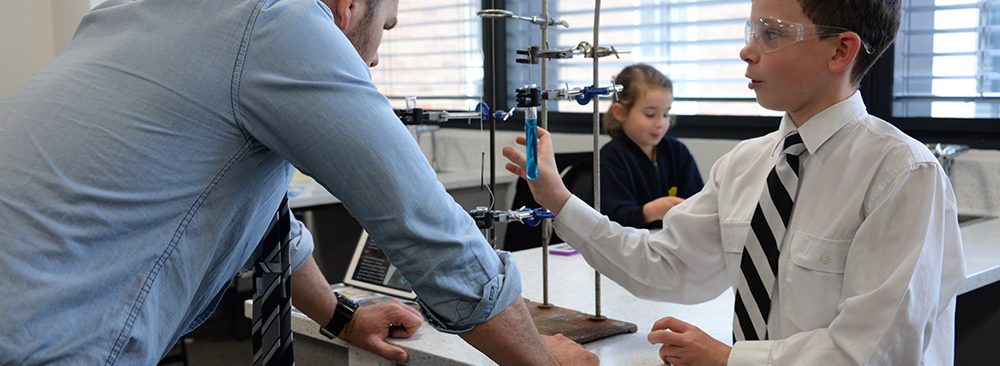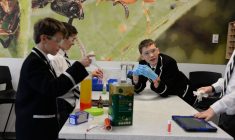Year 7 Science Expo
What subject most intrigues young learners? What subject is still rated highly by middle school learners? Interestingly, the answer is science even though it is taught less frequently than any other subject prior to middle school. That’s why I get excited when I see that spark in our boys’ eyes when they enter the Science Lab!
Over the course of Terms 2 and 3, with Year 7JVE boys, I have developed a Science project as part of their extension work. The project provided a balance of content and science process considerations, including an emphasis on investigation, concept development, and interdisciplinary applications. The boys were allocated a period per cycle and were offered times outside of class time so that they could come into the lab and work on their project. Their brief was to find something they were really interested in and research all the science behind their ‘cool’ investigation. They were then asked to reproduce and present information that they had learnt about it. The experience culminated in a presentation to parents and members of the College community where they could showcase what they had learnt.
This type of project-based learning is a subset of inquiry learning. A review of research about project-based learning concludes that such projects are focused on questions or problems that “drive students to encounter (and struggle with) the central concepts and principles of a discipline” (Thomas, 2000). What’s more, the central activities of a project involve inquiry and the construction of new knowledge by the student (Thomas, 2000). Students typically have a choice when it comes to designing their project, which allows them to pursue their interests and engage their curiosity. In the course of answering their own questions, students may investigate topics not identified by the teacher as learning goals.
For students, the benefits of project-based learning include:
- Increased attendance, growth in self-reliance, and improved attitudes toward learning (Thomas, 2000)
- Academic gains equal to or better than those generated by other models, with students involved in projects taking greater responsibility for their own learning than during more traditional classroom activities (Boaler, 1997; SRI, 2000 )
- Opportunities to develop complex skills, such as higher-order thinking, problem-solving, collaborating, and communicating (SRI, 2000)
Colleen Scalone
Science Teacher 7JVE, Acting Head of Middle Years
*SRI International. (2000, January). Silicon valley challenge 2000: Year 4 Report. San Jose, CA: Joint Venture, Silicon Valley Network.
*Thomas, J.W. (2000). A review of research on project-based learning. San Rafael, CA: Autodesk. http://www.k12reform.org/foundation/pbl/research















